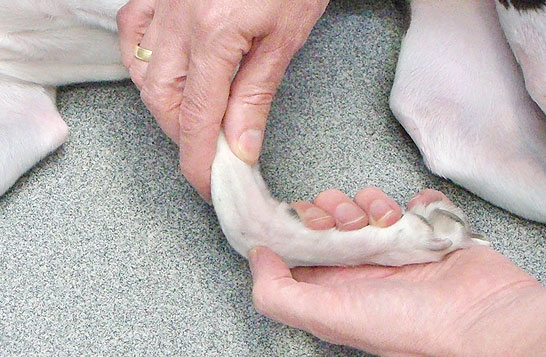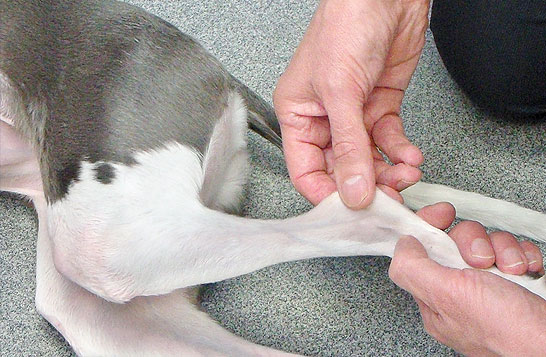Why Should I Bring my Pet to Willows for Immune-mediated Polyarthritis?
Willows is one of Europe’s leading small animal Orthopaedic referral centres treating over 1000 new patients a year. Our state-of-the-art hospital is led by internationally renowned Certified Specialists committed to providing the highest standards of care. Our Orthopaedic Surgeons are supported by our multi-disciplinary team of Specialists across a number of disciplines including; Internal Medicine, Anaesthesia and Diagnostic Imaging, all of whom may be involved in the diagnosis of patients with immune-mediated polyarthritis.
Willows has a large dedicated team of Nurses and clinical support staff available 24 hours a day, every day of the year to provide the best possible care for your pet.
What is Immune-mediated Polyarthritis?
Immune-mediated polyarthritis is a disorder of the immune system leading to inflammation in multiple joints. This condition in dogs is similar to the rheumatoid arthritis in humans. Immune-mediated polyarthritis is different to osteoarthritis which occurs much more commonly in dogs after injuries or due to old age.
What are the Most Common Causes of Immune-mediated Polyarthritis?
The immune system is usually responsible for fighting infections in the body. In polyarthritis, the immune system wrongly starts to attack the tissues of the joints. This can happen when the immune system is ‘tricked’ by diseases in other parts of the body such as infections, cancer or gastrointestinal disease.
What are the Signs of Immune-mediated Polyarthritis?
The signs of polyarthritis in dogs can be very variable as inflammation affects joints in more than one limb. Common signs include:
- Stiffness and reluctance to move
- Lameness in different limbs at different times
- Lethargy and a poor appetite.
Dogs with polyarthritis are usually found to have stiff, painful and swollen joints in more than one limb. Many have a fever.

How is Immune-mediated Polyarthritis Diagnosed?
A diagnosis of polyarthritis is made by taking joint fluid samples from multiple joints and submitting them for laboratory examination. The next step in the investigation of polyarthritis is to look for any possible underlying trigger factors for this disorder. This step is likely to include blood and urine tests, X-rays, abdominal ultrasound scanning or CT scans.
Fig 1: Dogs with polyarthritis tend to have swollen and painful joints


What Treatments are Available for Immune-mediated Polyarthritis?
Polyarthritis is usually treated with the use of medications to suppress the over-active immune system. This includes the use of steroids and other similar medications. Most dogs with immune-mediated polyarthritis are treated for several months with immune-suppressive medications, the doses of the drugs are gradually reduced over that time. Regular check-ups and blood tests are required.
Fig 2: A joint fluid sample being taken from a dog with polyarthritis
What can I Expect if my Pet is Treated for Immune-mediated Polyarthritis?
Most dogs that are treated for polyarthritis respond to treatment and are usually much brighter and more comfortable on medication. Some dogs with polyarthritis experience a flare-up when the doses are reduced or the medications are stopped, and these dogs may need long term (sometime lifelong) treatment.
To save this page as a PDF, click the button and make sure “Save as PDF” is selected.
Orthopaedics
Find out more
To assist owners in understanding more about Orthopaedics we have put together a range of information sheets to talk you through the some of the more common orthopaedic conditions seen and treated by our Specialists.

